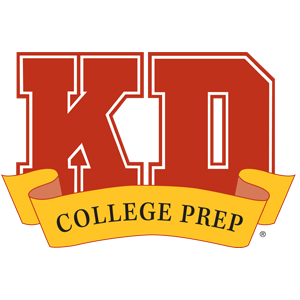The new year is here! And January brings the opportunity for a fresh start. Whether you’re a parent, a high school freshman, or a college-bound senior, it’s never too early to focus on bettering yourself or working toward big goals.
What goals will you set to make 2025 your year? As always, we’re here to help you get on the right track. We asked our college admissions experts and test prep instructors to come up with a list of 25 new year’s resolutions for high school students and their parents.
New Year’s Resolutions for High School Students
1. Explore Your Interests
While students will still have plenty of time to think about which career path to pursue or what college major to choose, the high school years are the perfect time to do some soul searching and discover what you like and dislike. Take advantage of this time by exploring new hobbies and gaining life experience that will help guide you toward the path that will bring you the most happiness.
2. Get Involved
It’s no mystery that colleges care about a student’s involvement in extracurricular activities. We encourage our students to get involved in student organizations as early as possible. Your participation in sports, student government, band, or other extracurriculars will help you add depth to your college resume.
Pro Tip: Stay committed to your favorite extracurriculars. A long term commitment shows colleges that you are dedicated and reliable. Also, the longer you stay involved in an organization, the more likely you are to gain leadership roles like student president or team captain. Leadership experience looks great on your application and helps you stand out.
3. Focus on Your Grades
This year, aim to get your best grades yet. Keep up with your assignments and always strive to do your best. If you fall behind, remember to ask your teacher for help. Better grades will help you improve your overall GPA and class ranking, moving you one step closer to achieving your college dreams.
Pro Tip: If you’re planning to apply to a highly competitive college, try to take the most challenging coursework available to you. Competitive colleges will review which classes you took and take this into consideration when evaluating your high school transcript.
This means that if you get all A’s in easy classes, you may not be chosen over a student who received B’s and C’s but took several AP® or honors classes. Learn more about Ivy League high school course requirements.
4. Set a Test Score Goal
College admissions tests can be challenging, and it often takes multiple attempts for a student to reach his or her target test score.
We recommend that students start taking practice tests for the ACT® or SAT® in 10th grade so that they can receive a clear picture of the areas in which they need to improve.
To set a test score goal, start by looking at a college’s test score ranges for the ACT or SAT test. This will give you a good estimate for what your target score should look like.
If you are a current KD student, we offer resources to help you determine your test score goal. To learn more, contact a director at your home campus.
5. Create a Test Prep Schedule, and Stick to It!
In the new year, try to make time to prepare for the ACT, SAT, or PSAT tests. These tests play a prominent role in the college admissions process, and an outstanding score can help you stand out in the college admissions process, earn scholarships, or earn placement in competitive degree programs.
At KD College Prep, we have 30+ years experience of preparing students for the ACT, SAT, and PSAT tests. We offer test prep courses live online or in person at one of our four DFW campuses. To learn more about our flexible test prep class schedules, contact us to schedule a free consultation.
6. Set Up a Clean, Distraction-Free Study Space
Some students are doing the majority of their studying at home. Whether you’re attending live online test prep classes or studying for your next algebra test, it’s important to have a quiet place to focus on what you’re learning.
Make it a goal to create a designated study space. If you already have a place to study, make sure it’s clean, well-lighted, and free of distractions. You can even spruce it up by adding a positive message or reminder, like a motivational quote or piece of artwork.
7. Research Colleges
Make it a goal to come up with a preliminary list of colleges you could see yourself attending. Once you’ve established which colleges you like the most, research their admissions requirements, program offerings, student life, and what the campus is like. Many colleges now offer virtual tours to help you get a sense of what the college is like in person. You can also sign up for online info sessions led by admissions officers.
We recommend that students start researching colleges as early as possible. This will give you plenty of time to review your options and determine which schools appeal to you most. By the summer before 12th grade, a student should have a pretty good idea of which schools to which he or she will apply. Read on to learn about how to create a balanced college list.
8. Work a Part-time Job or Volunteer
If you have some free time after school or on the weekends, apply for a part-time job or volunteer position. Through working a few hours per week, you can earn hands-on experience while also learning about the professional world or causes that interest you.
Volunteering is another way to gain experience. Some high schools require a certain number of hours involved in community service. Volunteering also matters to many colleges.
A first job will teach you valuable life lessons, like how to manage your own money. If you already have a part-time job, try setting a savings goal for this year.
9. Build Relationships with Your Teachers
Try to get to know your teachers this year. If you have a favorite teacher, be sure to express your appreciation for them. If a teacher compliments your work, make a note of it. At some point, you may need your teacher to write a letter of recommendation for you. It will help if your teacher remembers you and how you stood out in class. Thus, a meaningful connection with a teacher will lead to a more meaningful letter of recommendation.
Also, make sure to get to know your high school counselor. It is their job to help you stay on track to meet your goals. High school counselors often write some of the best letters of recommendations.
10. Start Thinking About How to Tell Your Story
Depending on where you apply to college, you may need to write college essays. Writing essays can be a long and arduous process, and you don’t want to wait until the last minute to think about what you’ll write about.
Think of your life’s experience and how it’s shaped who you are today. Start thinking about potential essay prompts or how you can tell your story in a unique way.
If you get stuck, we offer college essay assistance and editing services to help you find your voice and write compelling essays that college admissions officers will love.
11. Step Outside Your Comfort Zone
If you’re early on in your high school years, you may not know what you’ll write about. And that’s okay! Instead, try to step outside your comfort zone. Focus on seeking new experiences this year that will add depth to your life and help you grow as a person. Don’t be afraid to challenge yourself. This will help you figure out what to write about in the essays to come.
12. Show Gratitude
As you start your journey through 2025, remember to reflect on your life and all the blessings that have come your way. Say thank you to everyone who helped you come this far.
This year may bring new blessings, or it may bring obstacles. Even in trying times, a grateful heart can help you appreciate the little things and press on toward your goals. Here’s some more tips on how to practice gratitude.
13. Stay Organized
High school can be a very busy time for many students. With all the things on your plate, it’s easy to become overwhelmed and lose track of your goals. Take some time to organize your planner, eliminate clutter from your binder or backpack, and create a list of priorities for the next couple of months.
14. Find Time for Friends
Friendships can help you grow, especially in terms of social skills and understanding how to build close relationships with others. Whether you’re looking for someone to share a new hobby with or a mentor who can teach you about a specific career or industry, finding a new friend can serve you well this year.
If you’ve already established a tight-knit group of friends, remember to make time for them this year. Celebrate their achievements and be there when they need it. People tend to remember those friends that made an impact in their lives, especially during the high school years.
15. Do Something for Someone in Need
Small acts of kindness build character, and you shouldn’t wait until after graduation to start looking for ways to give back to your community. Many colleges desire students who can demonstrate a heart for serving others. This year, join a community service organization, start a non-profit, or donate to a local charity.
16. Practice a Self-Care Routine
High school is a busy, stressful time for many students. With all the responsibilities, scheduled events, pressures from parents/peers, and general lack of rest, it’s not unusual to experience brain drain or a sense of apathy. But don’t let it get so bad that you give up on the things that matter most.
This year, try to set aside more time to take care of yourself. If you carve out an evening or weekend to rest and reset, you’ll be more likely to take on the challenges faced throughout the school week. Self care can take many forms, but a good book, a spa night, meditation, and sleep are all good starting points.
Please know that practicing self care is not a substitute for seeking professional help from a psychiatrist, psychologist, or therapist/counselor if you are suffering from severe depression and/or anxiety or are considering self-harm, suicide, or harming others.
New Year’s Resolutions for Parents
1. Teach Your Kids Basic Life Skills
Is your teen prepared for life on his or her own? In 2025, set a goal for teaching your student the basics on how to take care of oneself. Make time to show him or her how to cook, change a tire, do the laundry, shop for groceries, etc. Success is often tied to preparation, so make sure your child is prepared for an independent life.
2. Set a College Savings Goal
College is a major financial commitment, and the more financially prepared you are, the less your child will have to pay in the long run. This year, set a budget that will allow you to stow away some money for college. Every penny counts, whether you’re able to save enough for books or to pay for your teen’s entire semester.
3. Show Interest
Raising a teenager can be a challenge, and sometimes the last thing you want to do is deal with a teenager’s bad attitude. We’ve been there. But in a few years, you’ll long for this time spent at home. Try to make the most of it while you still can.
This year, make an active effort to show interest in what’s going on in your teen’s life. Celebrate each small success along the way. And when you ask them how his or her day went, try to listen instead of criticize. These small acts will help boost your teen’s confidence and show that you are always on his or her side.
4. Attend College Planning Seminars
College admissions has changed a lot over the years. But luckily, we’re here to bring you up to date. Every year, we offer college planning seminars and free resources to help keep our families on the right track. To find out how to sign up for an upcoming planning seminar, contact your home campus.
5. Help Your Student Build Independence
Over the course of high school, your student will need to learn how to become an adult. You can help your student gain independence by encouraging him or her to take on more responsibility.
This can start with your teen becoming more self reliant. You can encourage your teen to set his or her own alarm for waking up in the morning. Over time, this trust can evolve to your student driving to school and back or taking on a part-time job.
One of the most impactful ways you can teach your teen to gain independence is to step back and let him or her take the wheel throughout the college admissions process. Let your teen decide where to apply, fill out applications, choose his or her own essay topics, etc. It’s okay to help when asked, but your teen always needs to be the one in control of his or her future.
New Year’s Resolutions for Both Students and Parents
1. Have a Conversation About How to Pay for College
At some point during the early years of high school, parents and students should sit down with one another to discuss how they will afford the cost of college. This will help establish a clear picture for how much tuition the family can afford, what scholarships and financial aid are needed, and which colleges a student can attend based on cost.
2. Live in the Moment
Remember, these moments won’t last forever. These are the years that you’ll look back on throughout the rest of your life. The time will pass before you know it, and it’s important to make memories and cultivate strong family relationships that will continue to grow in years to come.
3. Plan a College Visit
One of the best ways for families to get in touch with what life is really like at a particular college is to go on a campus visit. From going on an official campus tour to exploring the restaurants and entertainment opportunities in the surrounding community, college visits can be a fun and productive experience for both students and parents. For more tips on how to make the most of a campus trip, view our Complete College Visit checklist.
4. Find Support Throughout the Admissions Process
At some point, you may find that you need help with improving your teen’s test scores or applying to college. Luckily, our team of test prep instructors and college counselors are here to support your family with College Prep Packages that include both test prep and college counseling services for guidance through the entire admissions journey.
Learn more about our test prep and college counseling programs.














































